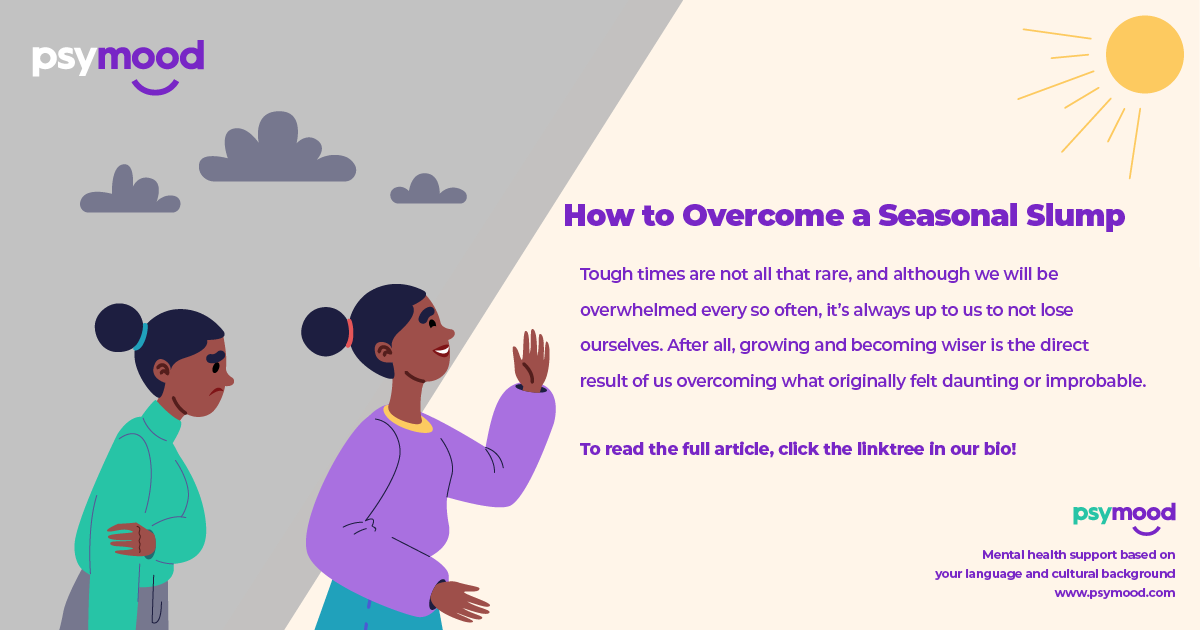How to Overcome a Seasonal Slump
Recently, I’ve come to experience a set of new challenges in my life; professionally, socially, and personally. Tough times are not all that rare, and although we will be overwhelmed every so often, it’s always up to us to not lose ourselves. After all, growing and becoming wiser is the direct result of us overcoming what originally felt daunting or improbable.
For whenever you feel similarly disoriented, I felt it imperative to share here the most effective habits I’ve researched and relied on to get through what we typically know as a slump. Here are my tried-and-true suggestions to overcome them:
Identify the cause
Understanding the cause of your slump can help you find the right solution. Take some time to reflect on what might be contributing to your slump, whether it’s a lack of inspiration, boredom, feeling overwhelmed, grief, or other trauma.
Keep in mind that trauma comes in many forms. It’s usually best to find counseling, especially when we’re trying to handle things by ourselves.
Make a plan with realistic goals
Once you’ve identified the cause, create a plan to overcome it. Break down your goals into small, achievable steps. This way, you’ll feel a sense of accomplishment and progress, which can help build your personal momentum.
Take action. Think less
It’s easy to get stuck in analysis paralysis when you’re in a slump. To get out of it, take action, especially if it’s just a small step forward. It can be as simple as cleaning your living space, or having a tough, but necessary conversation. Carrying through will boost the way you think and feel about yourself, which in turn improves your outlook and attitude.
Seek inspiration and support
Look for inspiration in your surroundings or through the experiences of others. Seek out stories of people who have overcome similar challenges or try new experiences to spark your creativity.
It always helps to expand your network, but that comes in tandem with learning to lean on others. Talking to someone you trust can provide you with a different perspective and help you work through your challenges.
Celebrate your successes
No matter how small they may be, your self-confidence is intrinsically tied to how well you can find satisfaction in your efforts. When in doubt, focus on the progress you’re making.
Reflect on your strengths
If you’re not too sure where your strengths lie, pay close attention to what you enjoy doing. It’s nothing too complicated, but this perception has profound benefits; you will find fulfillment more easily, giving you the drive to pursue your long-term goals.
Trust yourself
As I mentioned, it’s essential to reach out to friends, family, or a support group for help and encouragement.
More importantly, though, think about how much you do to support yourself. Guiltlessly, give yourself permission to feel your emotions, so you can start figuring yourself out. When we take judgment out of the equation, we hear our inner voices more clearly.
Final thoughts
There are common sayings that state that everything happens for a reason, and that even the most troublesome situations are temporary. There will come a time again, when we feel tired or overwhelmed. Especially then, we need to keep in mind that every decision we make, in turn, makes us.
Especially with ourselves, trust can be built. There will be a myriad of occasions where, thinking back, we can only think about what was wrong with us. Paradoxically, to start making better decisions, you need to trust yourself to consider them in the first place.
I encourage you to read this post every time you feel confused or anxious. More often than not, I’m sure these pointers will be of help!
PsyMood is a digital tool designed to help you find the support you need in the language that you are most comfortable with. PsyMood considers cultural background, geographical location, interests, and personal needs, amongst other factors, to pair you with service providers for either online or in-person therapy sessions.


.png)
.png)
.png)
Recent Comments